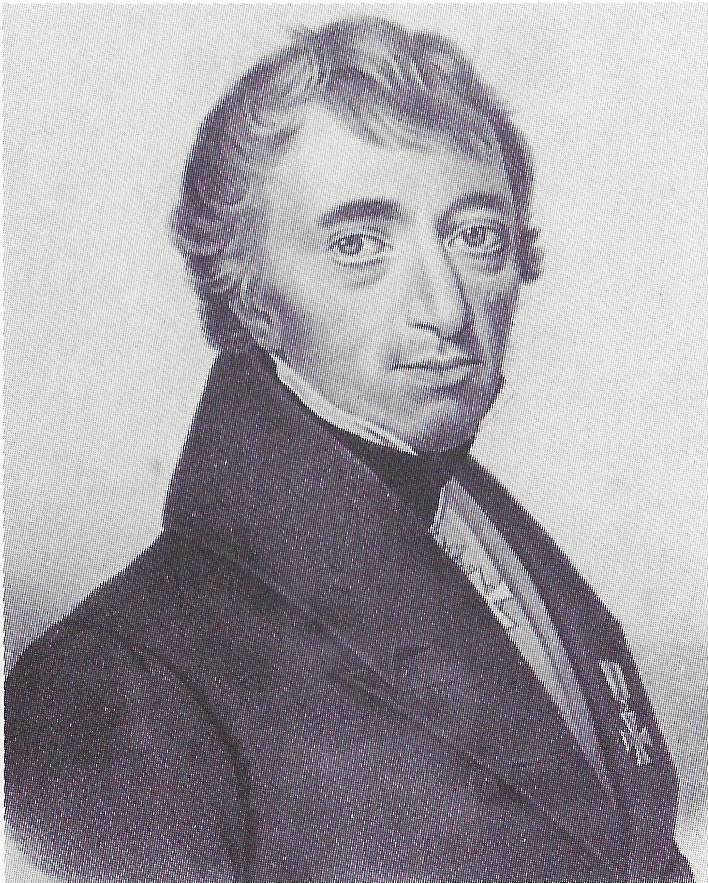Christian Heinrich Pfaff on:
[Wikipedia]
[Google]
[Amazon]
 Christoph Heinrich Pfaff (2 March 1773,
Christoph Heinrich Pfaff (2 March 1773,
ADB:Pfaff, Christoph Heinrich
In: Allgemeine Deutsche Biographie (ADB). Band 25, Duncker & Humblot, Leipzig 1887, S. 582–587. He then directed his attention particularly to
''Ueber Newton's Farbenteorie, Herrn von Goethe's Farbenlehre, und den chemischen Gegensatz der Farben''
– digital facsimile from the
 Christoph Heinrich Pfaff (2 March 1773,
Christoph Heinrich Pfaff (2 March 1773, Stuttgart
Stuttgart (; Swabian: ; ) is the capital and largest city of the German state of Baden-Württemberg. It is located on the Neckar river in a fertile valley known as the ''Stuttgarter Kessel'' (Stuttgart Cauldron) and lies an hour from the ...
– 24 April 1852, Kiel
Kiel () is the capital and most populous city in the northern Germany, German state of Schleswig-Holstein, with a population of 246,243 (2021).
Kiel lies approximately north of Hamburg. Due to its geographic location in the southeast of the J ...
, Holstein
Holstein (; nds, label=Northern Low Saxon, Holsteen; da, Holsten; Latin and historical en, Holsatia, italic=yes) is the region between the rivers Elbe and Eider. It is the southern half of Schleswig-Holstein, the northernmost state of German ...
) was a German physician
A physician (American English), medical practitioner (Commonwealth English), medical doctor, or simply doctor, is a health professional who practices medicine, which is concerned with promoting, maintaining or restoring health through th ...
, chemist
A chemist (from Greek ''chēm(ía)'' alchemy; replacing ''chymist'' from Medieval Latin ''alchemist'') is a scientist trained in the study of chemistry. Chemists study the composition of matter and its properties. Chemists carefully describe th ...
and physicist
A physicist is a scientist who specializes in the field of physics, which encompasses the interactions of matter and energy at all length and time scales in the physical universe.
Physicists generally are interested in the root or ultimate caus ...
.
Biography
He graduated as a physician at the Karlsschule in Stuttgart in 1793, where he studied underCarl Friedrich Kielmeyer
Carl Friedrich Kielmeyer (22 October 1765 – 14 August 1844) was a German biologist and naturalist born in Bebenhausen, today part of the city of Tübingen. He was a pioneer of '' Naturphilosophie'', helped to establish organic chemistry (''Pfl ...
and became good friends with Georges Cuvier
Jean Léopold Nicolas Frédéric, Baron Cuvier (; 23 August 1769 – 13 May 1832), known as Georges Cuvier, was a French natural history, naturalist and zoology, zoologist, sometimes referred to as the "founding father of paleontology". Cuvier ...
. He then went to Göttingen
Göttingen (, , ; nds, Chöttingen) is a college town, university city in Lower Saxony, central Germany, the Capital (political), capital of Göttingen (district), the eponymous district. The River Leine runs through it. At the end of 2019, t ...
, where he published the results of his galvanic inquiries in ''Ueber thierische Electricität und Reizbarkeit'' ("On animal electricity and susceptibility to stimulus"). In 1797 he became an associate professor at the University of Kiel
Kiel University, officially the Christian-Albrecht University of Kiel, (german: Christian-Albrechts-Universität zu Kiel, abbreviated CAU, known informally as Christiana Albertina) is a university in the city of Kiel, Germany. It was founded in ...
, and in 1802 was made professor of chemistry, physics and medicine there with rank at the same time as a member of the medical faculty.In: Allgemeine Deutsche Biographie (ADB). Band 25, Duncker & Humblot, Leipzig 1887, S. 582–587. He then directed his attention particularly to
pharmaceutical chemistry
Medicinal or pharmaceutical chemistry is a scientific discipline at the intersection of chemistry and pharmacy involved with designing and developing pharmaceutical drugs. Medicinal chemistry involves the identification, synthesis and developmen ...
, and was thus led to the composition of his most important work, ''System der Materia Medica nach chemischen Principien'' ("System of materia medica using chemical principles", 1808–24). Among other writings of his are:
* ''Ueber und gegen den thierichen Magnetismus'' (“Animal magnetism
Animal magnetism, also known as mesmerism, was a protoscientific theory developed by German doctor Franz Mesmer in the 18th century in relation to what he claimed to be an invisible natural force (''Lebensmagnetismus'') possessed by all livi ...
exposed and opposed", 1807).
* ''Handbuch der analytischen Chemie'' ("Handbook of analytical chemistry
Analytical chemistry studies and uses instruments and methods to separate, identify, and quantify matter. In practice, separation, identification or quantification may constitute the entire analysis or be combined with another method. Separati ...
,” 1824–25).
* ''Der Electromagnetismus'' (1824).
* ''Parallele der chemischen Theorie und der voltaischen Contacttheorie der galvanischen Kette'' ("Parallels between chemical theory and the voltaic contact theory of galvanic chains", 1845).
His brothers Johann Friedrich Pfaff
Johann Friedrich Pfaff (sometimes spelled Friederich; 22 December 1765 – 21 April 1825) was a German mathematician. He was described as one of Germany's most eminent mathematicians during the 19th century. He was a precursor of the German school ...
and Johann Wilhelm Andreas Pfaff
Johann Wilhelm Andreas Pfaff (5 December 1774 – 26 June 1835), was professor of pure and applied mathematics successively at Dorpat, Nuremberg, Würzburg and Erlangen. He was a brother of Johann Friedrich Pfaff
Johann Friedrich Pfaff (sometimes ...
were noted mathematicians.
References
* ;Attribution *External links
Christian Heinrich Pfaff's (1813''Ueber Newton's Farbenteorie, Herrn von Goethe's Farbenlehre, und den chemischen Gegensatz der Farben''
– digital facsimile from the
Linda Hall Library
The Linda Hall Library is a privately endowed American library of science, engineering and technology located in Kansas City, Missouri, sitting "majestically on a urban arboretum." It is the "largest independently funded public library of scien ...
{{DEFAULTSORT:Pfaff, Christian Heinrich
1773 births
1852 deaths
19th-century German physicians
19th-century German chemists
19th-century German physicists
German physiologists
Academic staff of the University of Kiel
Physicians from Stuttgart
People educated at the Karlsschule Stuttgart